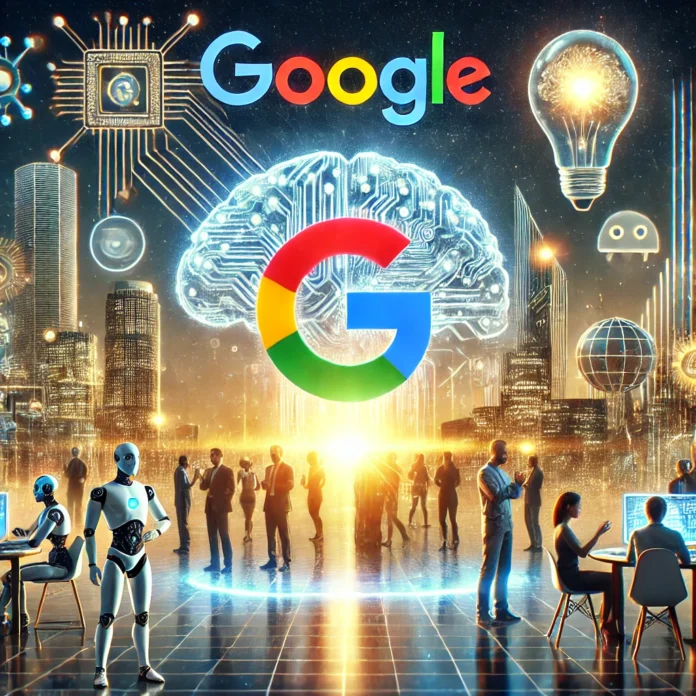In a bold move to cement its position at the forefront of artificial intelligence (AI) development, Google announced the launch of its AI Futures Fund on May 12, 2025, aimed at fueling the growth of AI startups worldwide. This initiative, revealed at a time when generative AI is reshaping industries, offers startups not only financial backing but also access to Google’s cutting-edge AI models, research expertise, and go-to-market support. As competition in the AI landscape intensifies, this fund could redefine how emerging companies scale their innovations, potentially accelerating breakthroughs in language models, generative AI, and beyond.
A Strategic Investment in AI’s Future
The AI Futures Fund is Google’s latest effort to bolster the global AI ecosystem. Eligible startups will receive direct investments, early access to advanced AI models like Gemini 2.5 Pro, and hands-on support from Google’s researchers and engineers. According to a blog post from Google, the fund is designed to empower startups to tackle complex challenges in fields such as healthcare, education, and cybersecurity. This comes on the heels of Google’s earlier $1 billion investment in Anthropic, a generative AI startup, signaling a broader strategy to foster innovation through partnerships rather than solely in-house development.
The timing of this announcement is critical. Posts on X indicate growing excitement around Google’s move, with users noting that the fund positions the tech giant as a key player in supporting the next wave of AI innovation. Meanwhile, competitors like Microsoft and Amazon are also pouring billions into AI startups, with OpenAI recently valued at $300 billion in a funding round. Google’s fund, however, stands out for its emphasis on providing technical resources alongside capital, potentially giving startups a competitive edge in developing sophisticated language and generative models.
Why This Matters
The AI Futures Fund arrives amid a surge in demand for cost-effective, scalable AI solutions. Startups like DeepSeek have demonstrated that high-performing large language models (LLMs) can be built on budgets as low as $6 million, challenging the narrative that AI development requires astronomical investments. Google’s initiative could democratize access to resources, enabling smaller players to compete with industry giants. This is particularly significant for generative AI applications, such as text-to-image or text-to-video models, which are increasingly integral to industries like advertising, entertainment, and education.
Moreover, the fund aligns with Google’s broader AI strategy, which includes advancements in grid optimization, cybersecurity, and education. For instance, Google recently collaborated with PJM Interconnection to use AI for managing the U.S. electric grid, showcasing its commitment to applying AI to real-world challenges. By supporting startups, Google is not only fostering innovation but also ensuring that its ecosystem remains at the cutting edge of AI applications.
Ethical and Regulatory Considerations
The rapid growth of AI startups raises critical questions about regulation and ethics. As AI models become more autonomous—OpenAI’s latest models, for example, can “think with images” and perform complex tasks—concerns about transparency and accountability are mounting. Anthropic’s CEO, Dario Amodei, recently emphasized the need for better interpretability in AI models by 2027, highlighting the risks of deploying systems without understanding their decision-making processes. Google’s fund could play a pivotal role in addressing these concerns by supporting startups focused on ethical AI development, though it remains to be seen how the company will balance innovation with responsibility.
The Bigger Picture
The AI Futures Fund is more than a financial commitment; it’s a signal that the AI race is entering a new phase. As startups gain access to Google’s resources, we can expect accelerated development in language models like Gemini, generative models for video and audio, and novel applications in robotics and beyond. The fund also reflects a broader trend of tech giants betting big on AI to drive economic growth. With tariffs and economic uncertainty impacting markets, as seen in recent stock fluctuations, AI investments are viewed as a hedge against volatility.
For businesses and consumers, this could translate to more accessible AI tools, from advanced chatbots to creative content generation platforms. However, the influx of funding also raises the stakes for startups to deliver tangible results, as the generative AI bubble remains a concern among analysts.
Conclusion
Google’s AI Futures Fund is a game-changer for the AI startup ecosystem, promising to unlock new possibilities in generative AI, language models, and real-world applications. By combining financial support with technical expertise, Google is positioning itself as a catalyst for the next generation of AI breakthroughs. As the industry grapples with ethical challenges and economic pressures, this initiative could shape the future of AI in profound ways.




